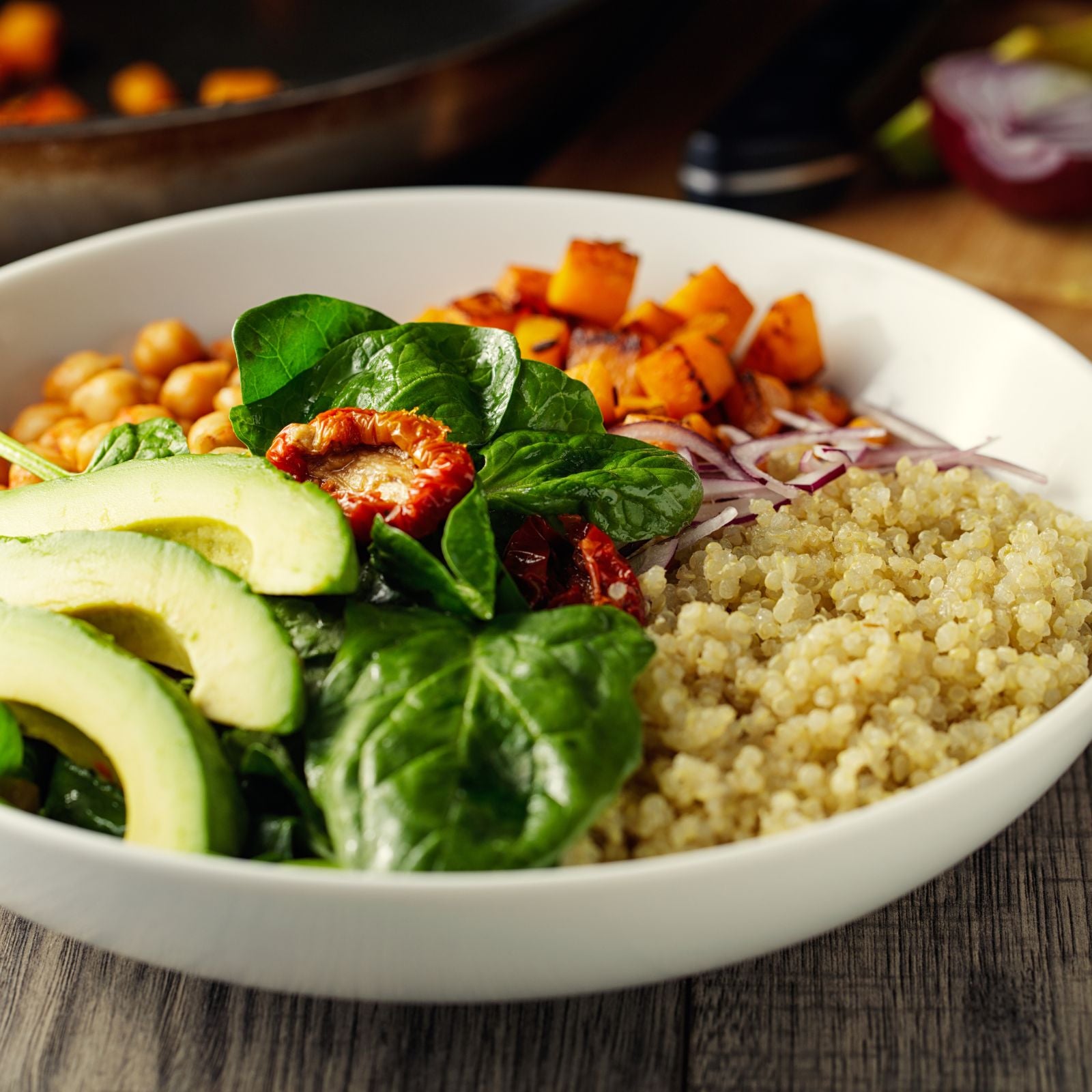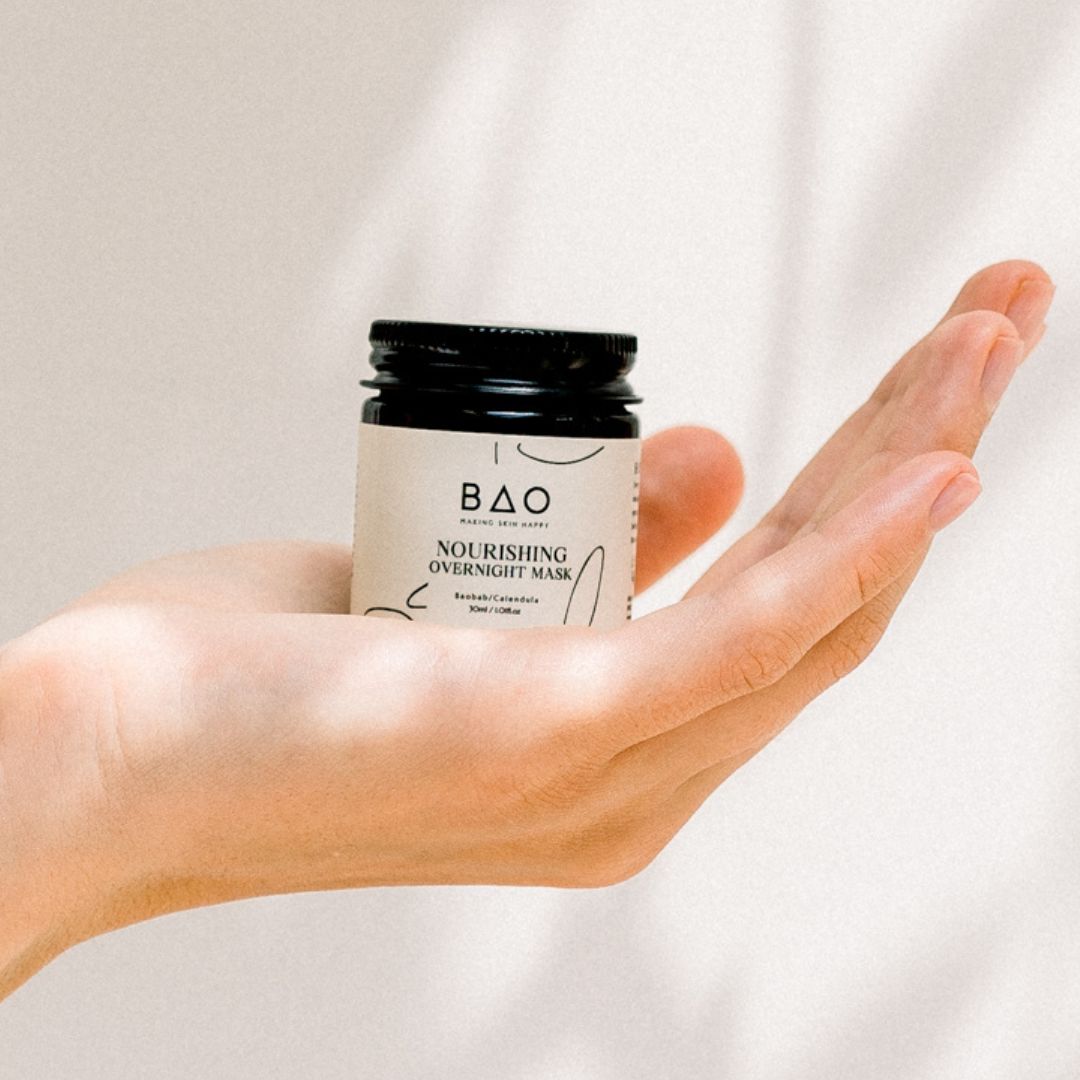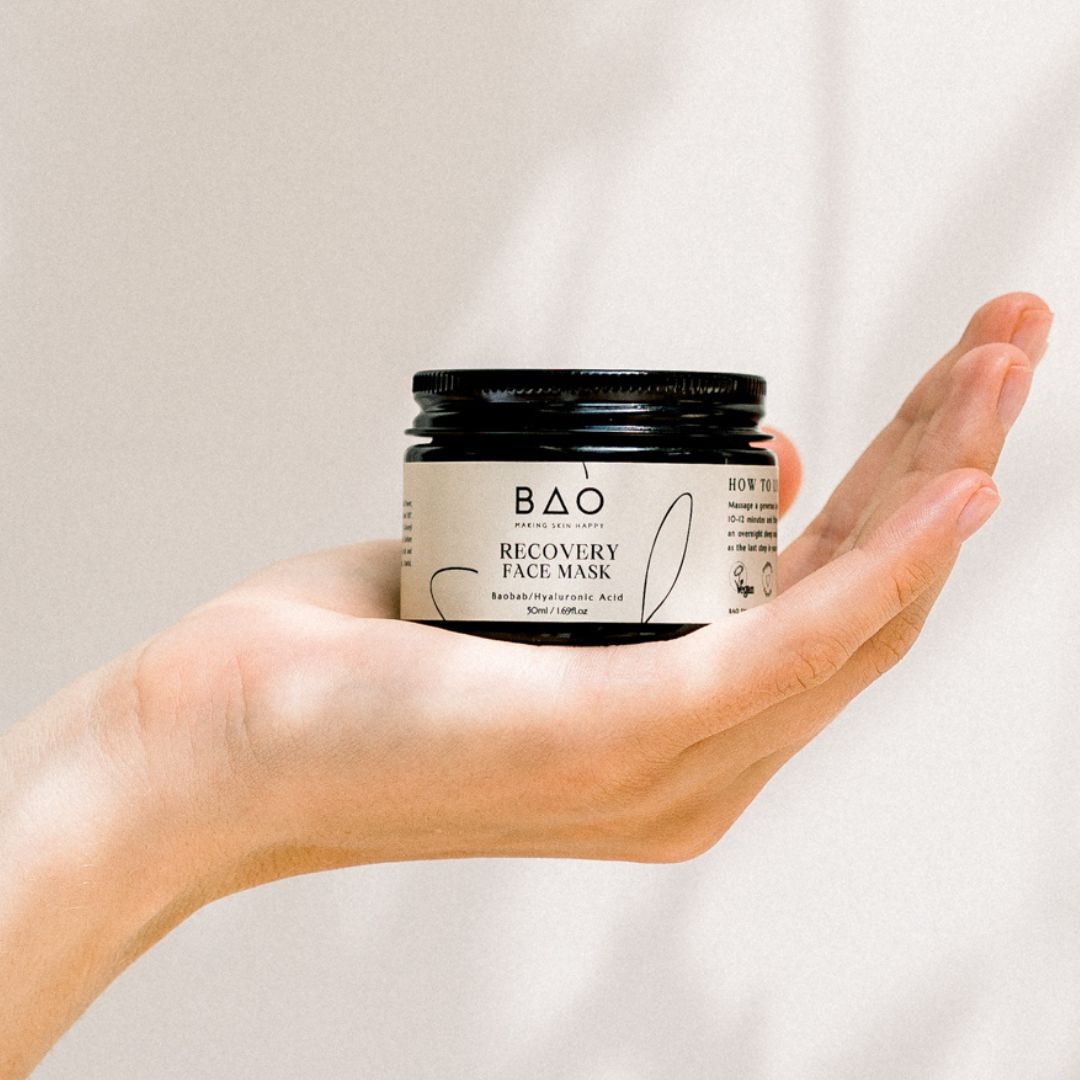Rosacea, or acne rosacea, is a non-contagious skin inflammation that exclusively affects the face.
The condition first appears between the ages of 30 and 50 years.
Redness & rosacea symptoms
The small surface blood vessels (capillaries) of the skin enlarge, giving the appearance of a permanent flush. The forehead, cheeks and chin may develop yellow-headed pimples. Unlike acne, rosacea does not scar.
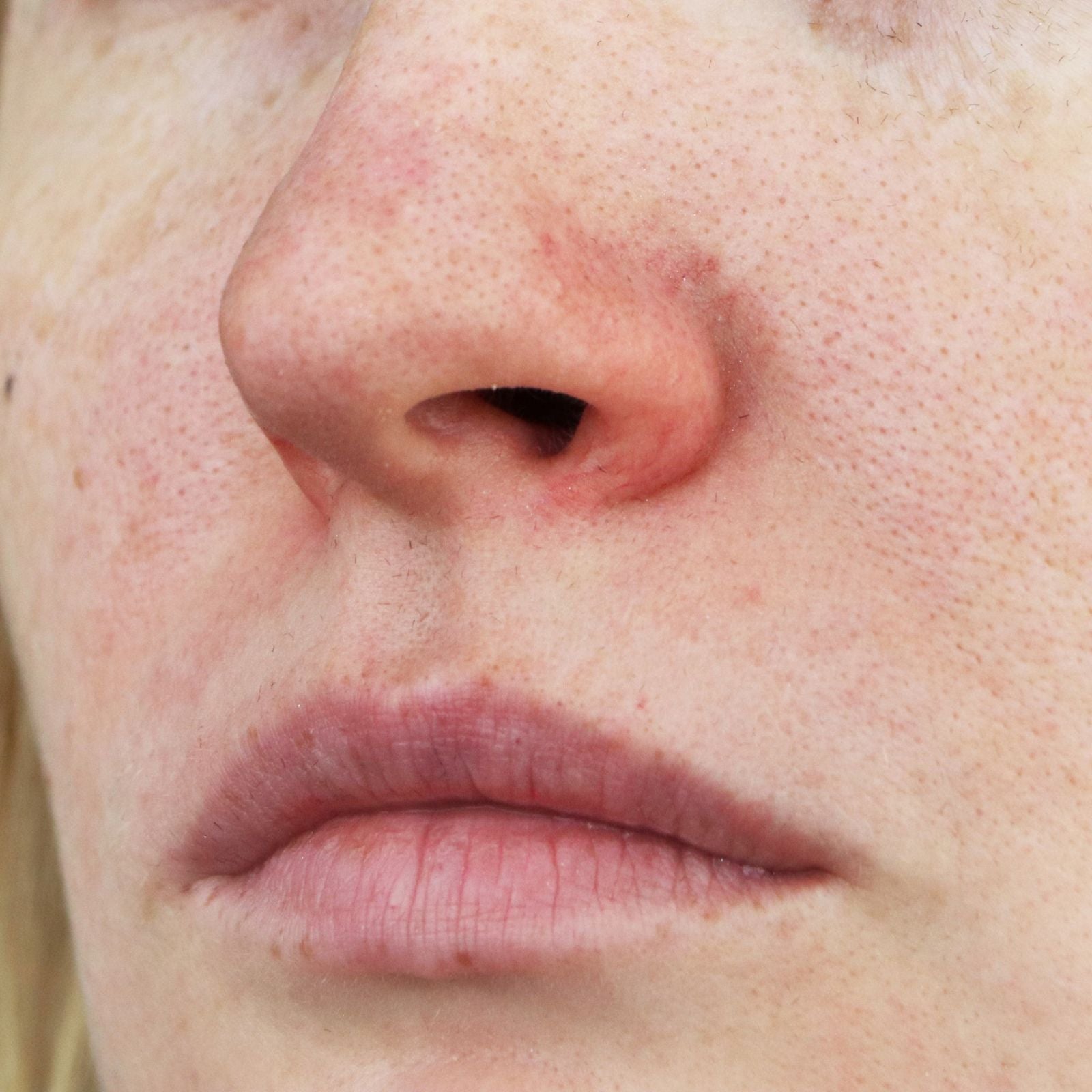
What are the first signs?
Frequent flushing or blushing is commonly the first sign.
Over time, permanent redness (erythema) may develop as the capillaries enlarge and pustules begin to form.
In men, severe rosacea can cause the nose to become reddened and enlarged (rhinophyma).
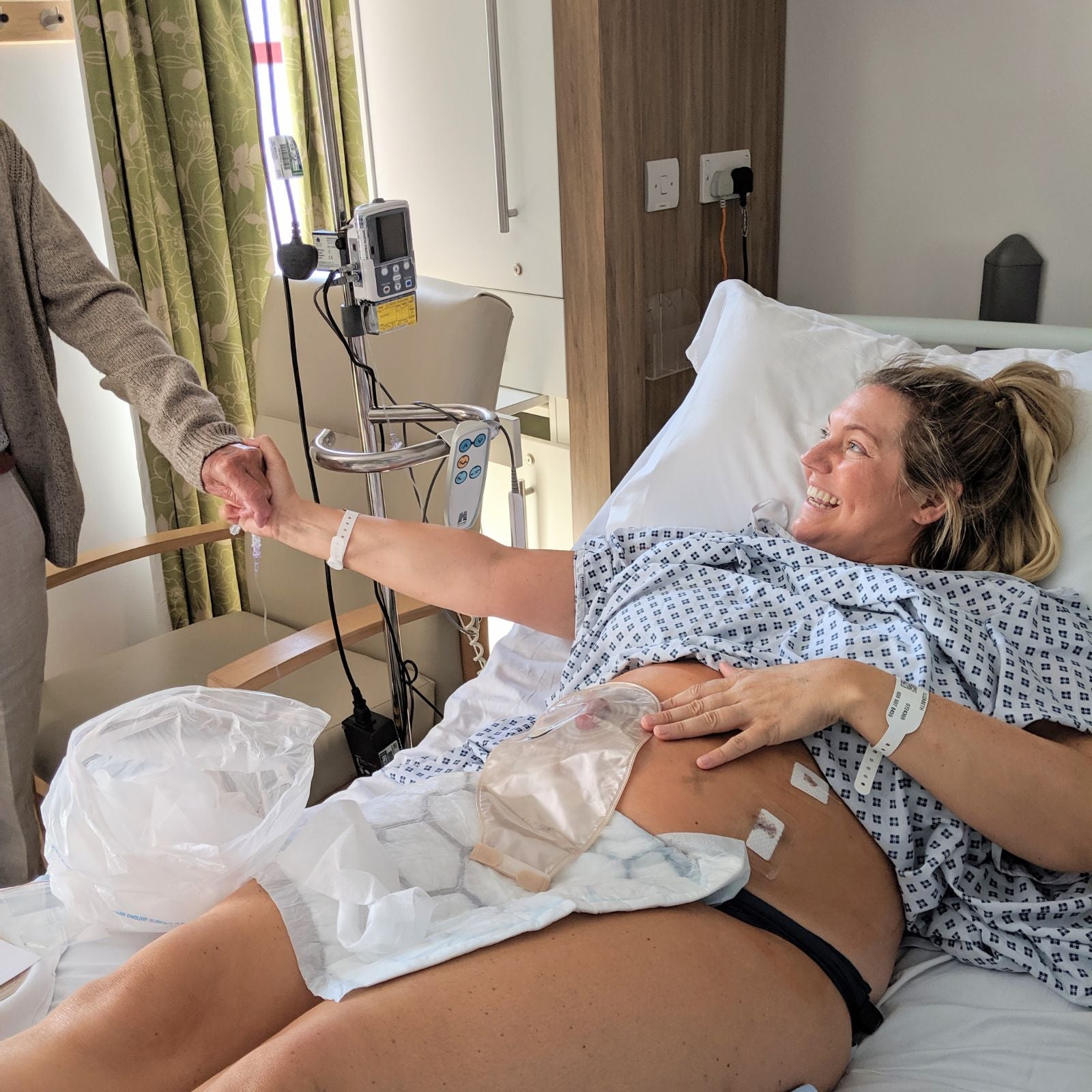
Worsening symptoms
The symptoms tend to worsen with advancing age.
The cause is unknown and there is no permanent cure. However I have lived with Rosacea for the past 3 years, brought on by years of steroid use and nasty medications for my Crohn’s Disease.
But there are definitely some steps you can take to help reduce it.
Look at your diet, cutting down or completely avoiding alcohol will help to reduce overheating and redness. Some foods may also heat your skin from within making it feel extremely uncomfortable.
If you’re living with Rosacea or suffering from redness, what you do and don’t eat will have a huge effect on your skin. There are actually certain calming foods you can eat to dramatically reduce your sensitivity levels. However, most importantly there are foods that are best avoided too. For example, mint provides powerful digestive-calming properties which can help to reduce inflammation and soothe skin. Whereas alcohol and nightshades can cause cheeks to become hot and inflamed.
YOUR REDNESS & ROSACEA SKIN HEROES
Nourish it. Care for it. Feed it.
With this skin type, you are more prone to reactions, such as redness and itching and perhaps even burning or stinging in some areas. It is essentially a breakdown of the skin’s protective barrier and can be caused by the environment, dehydration or an underlying condition, such as contact dermatitis, specific allergies or rosacea.
Add lots of calming nutrition foods like sweet potatoes, healthy fats, berries, probiotics and ginger.
Then try to avoid very spicy foods and drinks such as hot sauces, spices and alcohol, unhealthy fats such as trans fats found in fast foods like chips, pizza, burgers, cookies and croissants. Avoid eating too much of foods that are rich in tyramines, such as processed meats, citrus fruits and again alcohol, plus caffeinated drinks such as coffee, black tea and certain sodas.
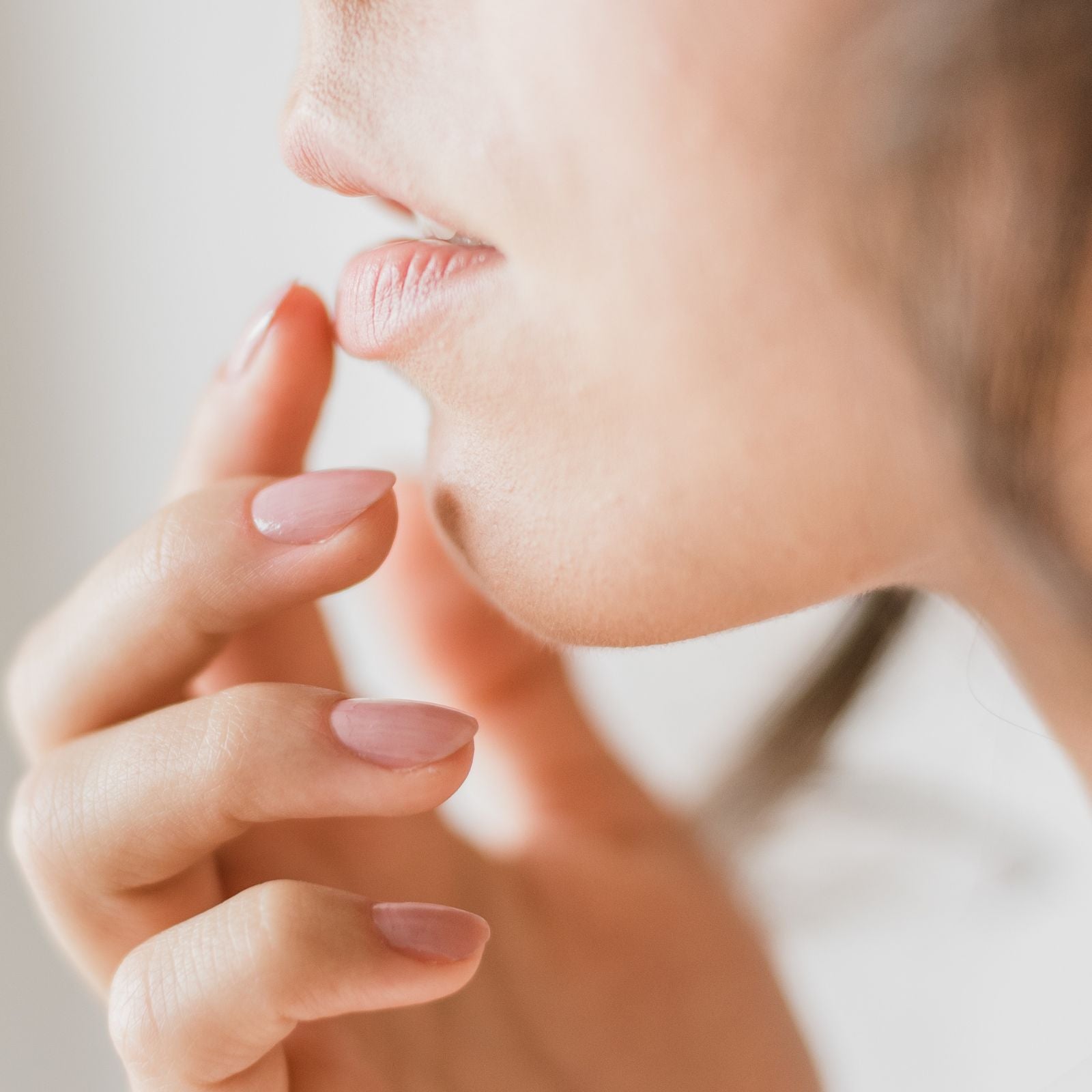
7 Ingredients Your Skin Should Definitely Avoid
READ MORE